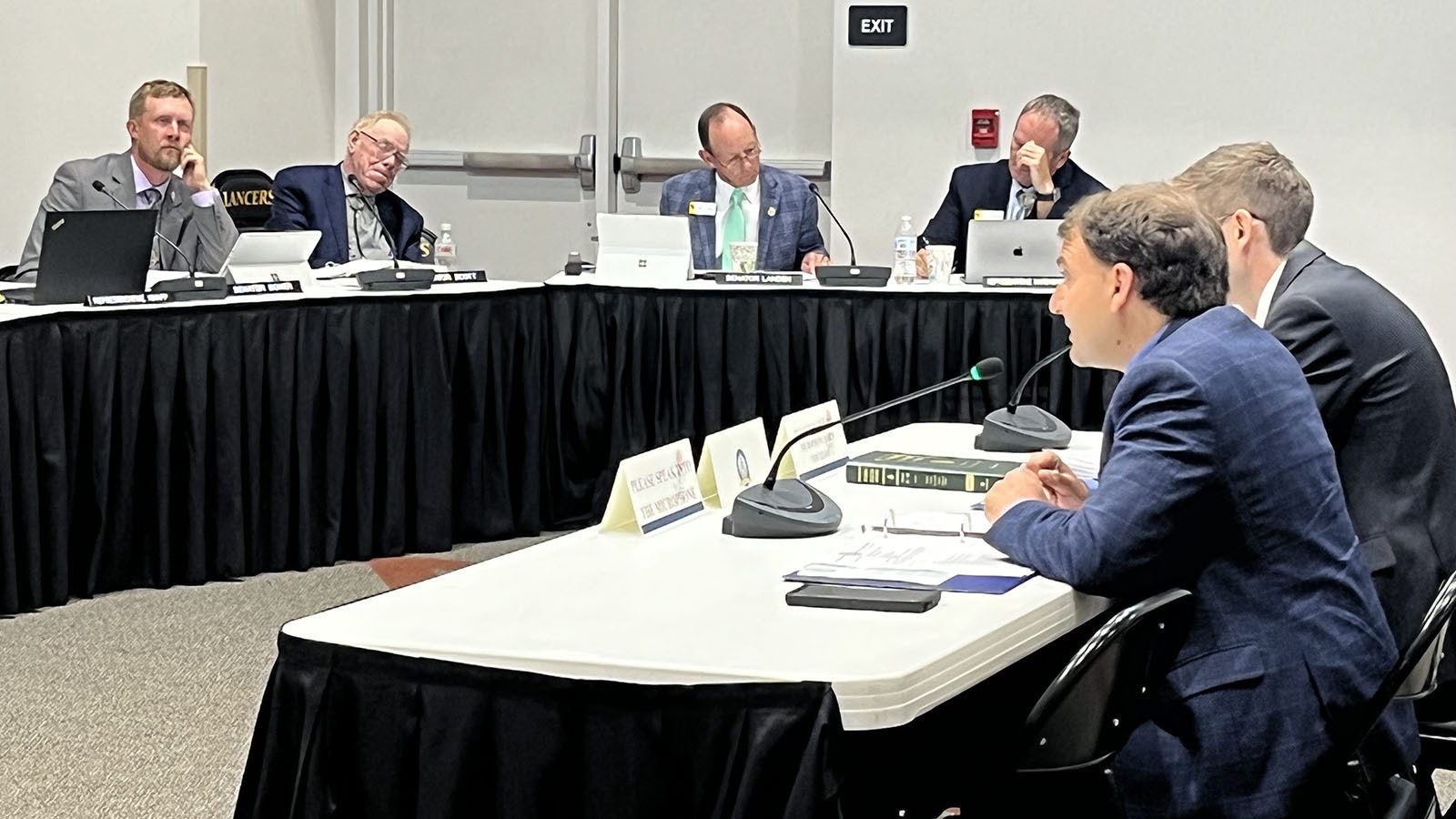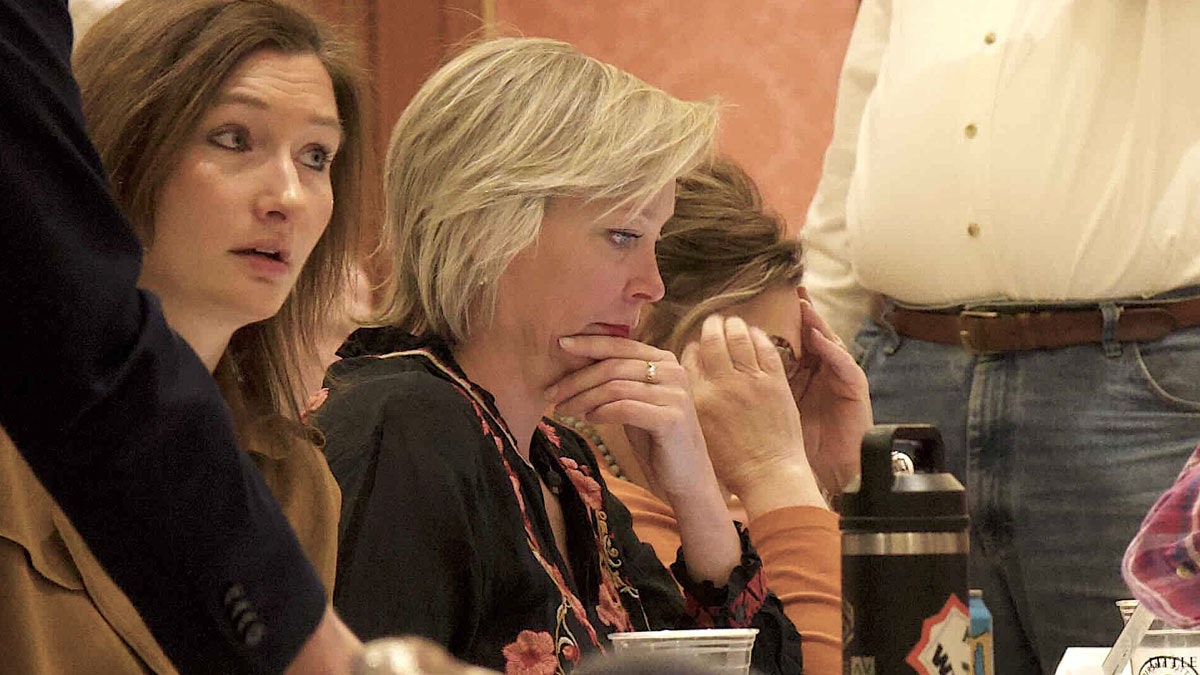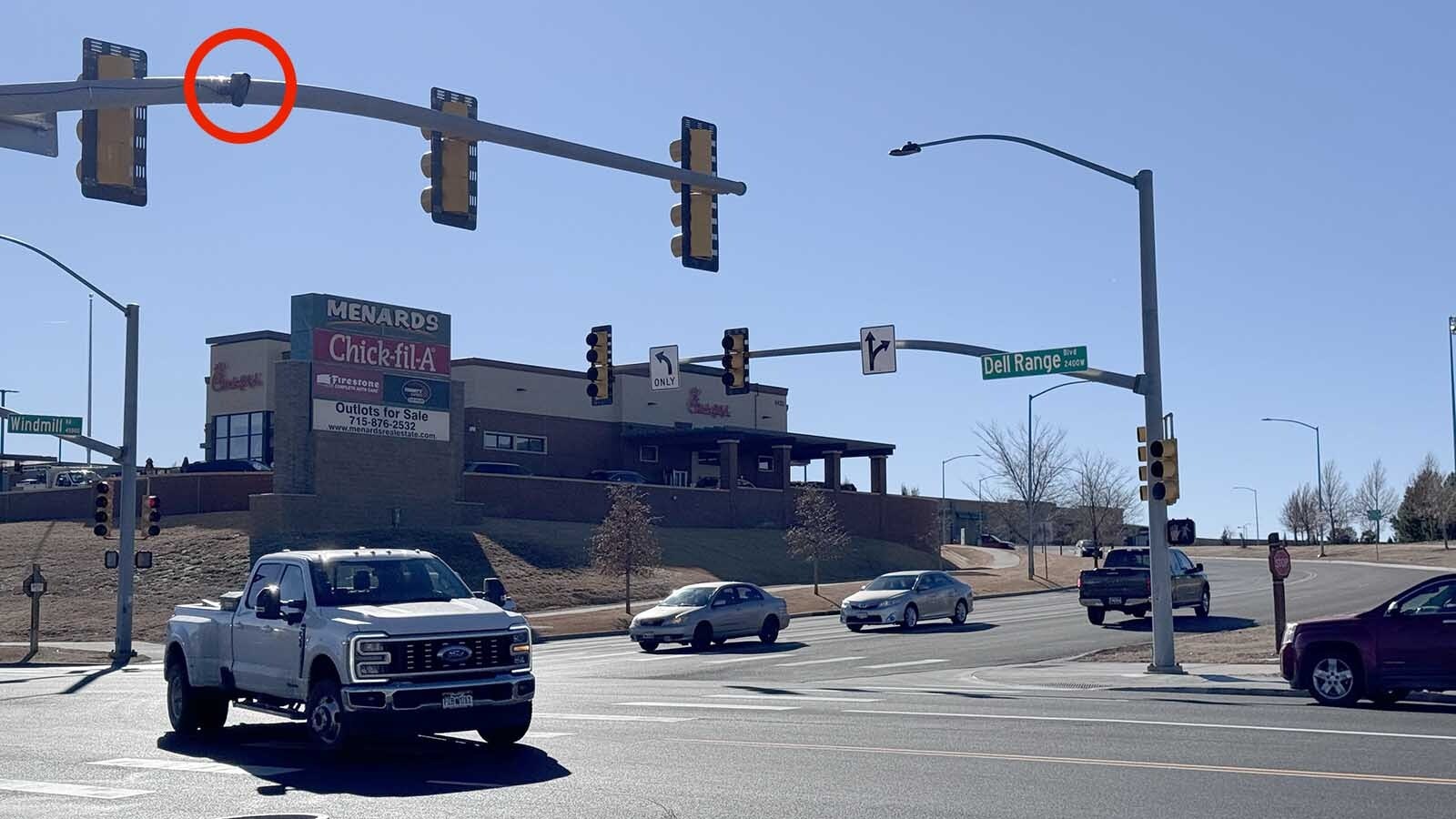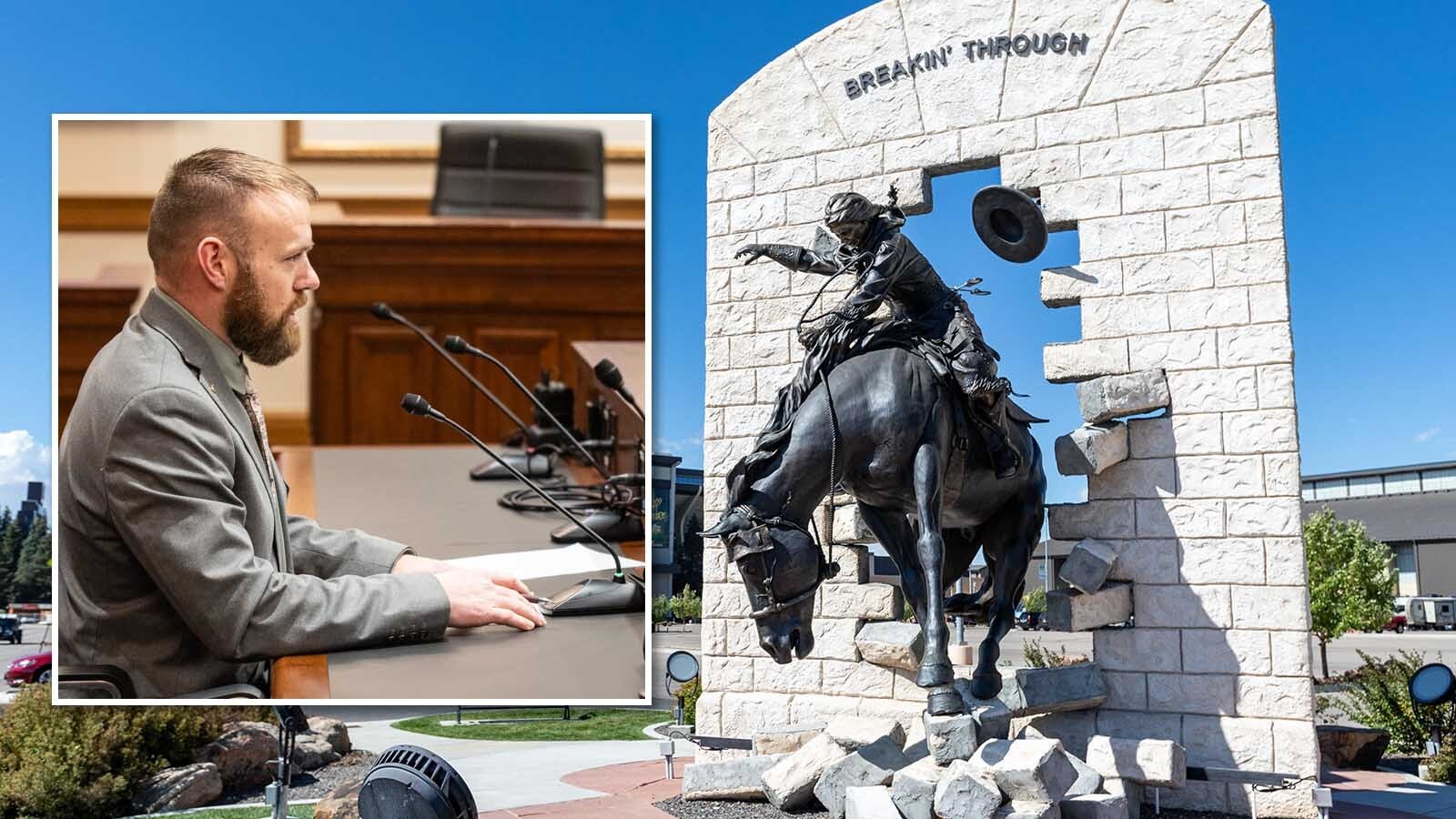DOUGLAS — A debate over election residency rules came down to the meanings of the words “bona fide” and “resident” as the Wyoming lawmakers consider requiring voters live in the state for 30 days before being eligible to vote.
Secretary of State Chuck Gray pushed the Legislature’s Corporations, Elections and Political Subdivisions Committee on Thursday morning to get ahead of an issue that could be a problem for Wyoming in the future.
Gray was in Douglas as the committee met there to ask it to sponsor a bill that would require 30 days of residency to vote in Wyoming.
“We believe it’s essential Wyoming has safeguards in place and ensure elections are decided by Wyomingites,” Gray said.
Is It Happening?
There were allegations made to the committee Thursday about a large number of vehicles being parked outside Wyoming polling places in 2022 with Colorado license plates, but there has never been any evidence to show that was voter fraud.
Gray did not provide any specific examples of nonresidents voting in past Wyoming elections.
He said even a single limited instance of fraud could throw an entire election into doubt, outlining a scenario of someone from out of state who could check into a Wyoming hotel and then immediately be able to vote in the state.
Malcolm Ervin, president of the Wyoming County Clerks Association, said county clerks generally support a residency rule because it’s the clerks who become blamed whenever something goes wrong with an election.
“We want to make that very clear that we faced the brunt of accusations when someone believe us not to be doing our job,” he said.
What Do Current Laws Say?
Wyoming’s laws are rather ambiguous as to what qualifies as a resident.
Current law states that someone must be a “bona fide resident” to be eligible to vote in Wyoming. Voters sign an oath when they register to vote affirming their status as a bona fide resident, which can technically be prosecuted if this is found to be false.
There is no clarity provided as to what is “bona fide,” and Gray said the current law is prohibitive to any prosecution on this matter as it is a definition that is left up to individual interpretation.
He and Ervin said the only immediate change that the bill would make if passed into law would be an oath from voters that they had lived in the state for 30 days before voting here.
Although it may appear to be a small change, Gray said this would still be an important change that would pave the way to prosecute voter fraud in the future.
“We’re going to be able to handle some of these cases where we don’t actually have Wyomingites voting in elections,” Gray said.
State Sen. Cale Case, R-Lander, and Rep. Mike Yin, D-Jackson, were skeptical.
“I don’t think the new language makes it a slam dunk to prosecute right now,” Case said. “I don’t see how this makes a big difference.”
Ervin said allegations about nonresidents voting is rare in Wyoming and he views the legislation as mostly an effort to improve public perception of elections.
“Whether it’s a problem, the problem … we’re often seeing is that we’re doing something wrong,” he said.
In Practice
About half of U.S. states have passed some form of residency requirement, including Montana, Idaho, Colorado, Utah and South Dakota. Gray said the draft legislation was specifically modeled after Idaho’s law.
He told the committee that more than 30 state constitutions were founded with durational requirements for longer than 30 days, with some states as long as two years.
Prior to 1972, Wyoming had a one-year residency requirement, but that rule was struck down in a series of U.S. Supreme Court and Wyoming Supreme Court decisions.
Many oil field workers in Wyoming are short-term residents, and some have expressed concern that a durational residency requirement would prevent them from voting.
Cheyenne resident Don Odom said it’s a matter of personal responsibility to vote where one is legally allowed.
“As far as people moving at the last minute, that’s part of your individual responsibility as an American,” he said. “There’s not a lot of conversation about individual responsibility these days, but it exists.”
A few legislators expressed concerns that a residency requirement would prevent new residents from voting in presidential elections, a right required under federal law.
Gray said under federal law, a person is entitled to vote in the state where they came from if ineligible in the state where they currently live.
Case mentioned a scenario where someone arrives in Wyoming then leaves shortly after, but could say they were in the state 30 days earlier when they go to vote. Gray admitted this scenario creates complex questions, but reiterated that he believes the bill would improve the status quo.
Is It Really A Problem?
Sheridan resident Gail Symons questioned the need and enforceability of the proposed bill and provided data showing that only 5.4% of the state’s registered voters registered the same year in Wyoming and less than 2% did so in the 30 days prior to the election they voted. Symons said 85% of these “last-minute registrants” voted in both primary and general elections.
Of those who registered more than 30 days before they voted, 44% voted in a primary. In 2022, 76% of legislative seats and nearly all county races were decided in the primary election.
Symons described Gray as a “snake oil salesman” who is “peddling theories of fraud.”
“We do not have fraud,” she said. “If we do have fraud, we can’t document it. Fear is no reason to write statutes. If we don’t base this on facts, then what are we doing?”
The committee debated when the 30-day requirement would go into effect for early and absentee voting. It was decided the clock would start whenever someone casts a vote.
The Corporations Committee voted nearly unanimously to move the bill to its next meeting in October for more discussion.
Both Gray and Ervin said they consider the topic of defining what is a resident to be a separate discussion that will need to be ironed out later.
Leo Wolfson can be reached at leo@cowboystatedaily.com.





